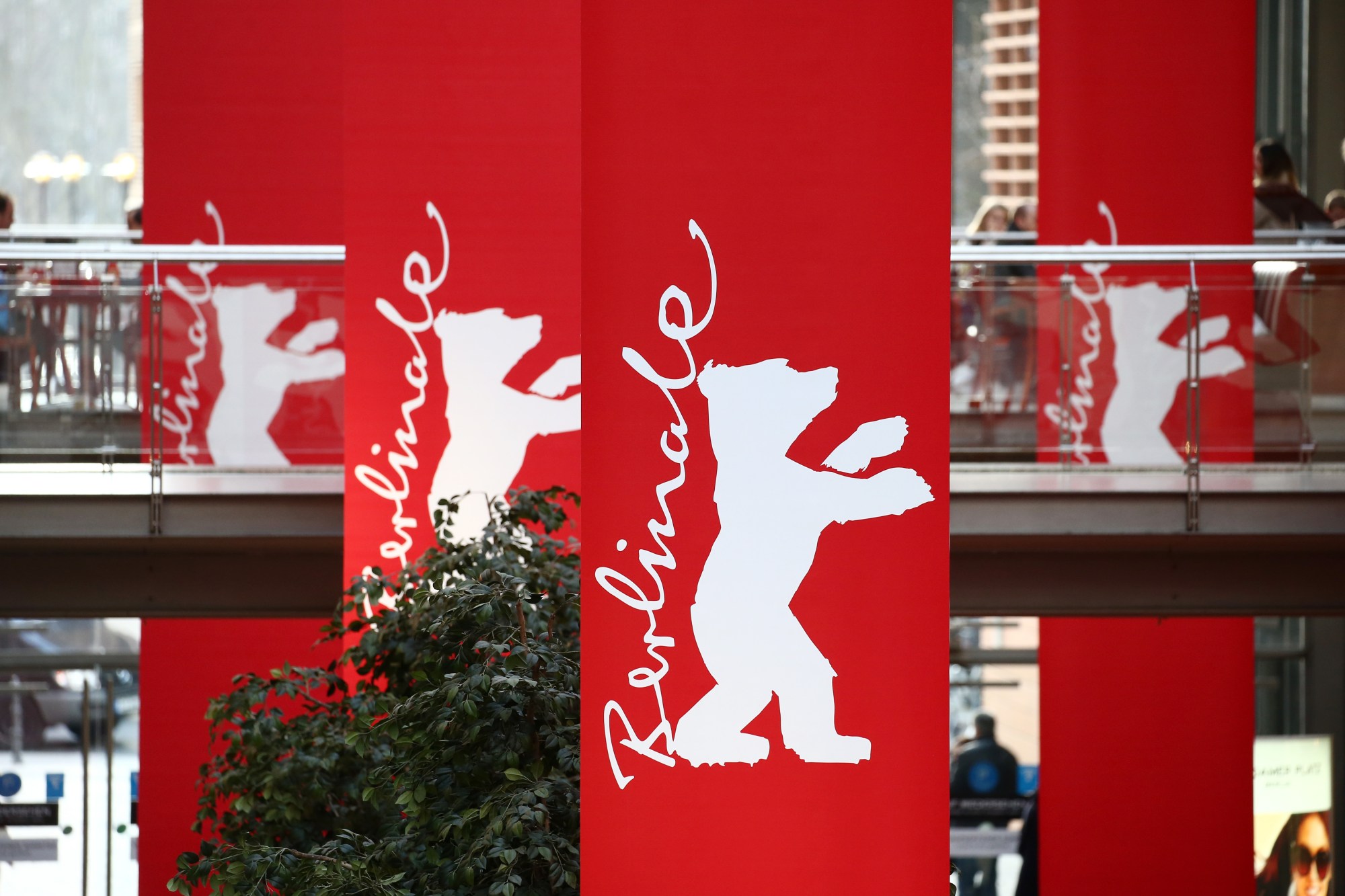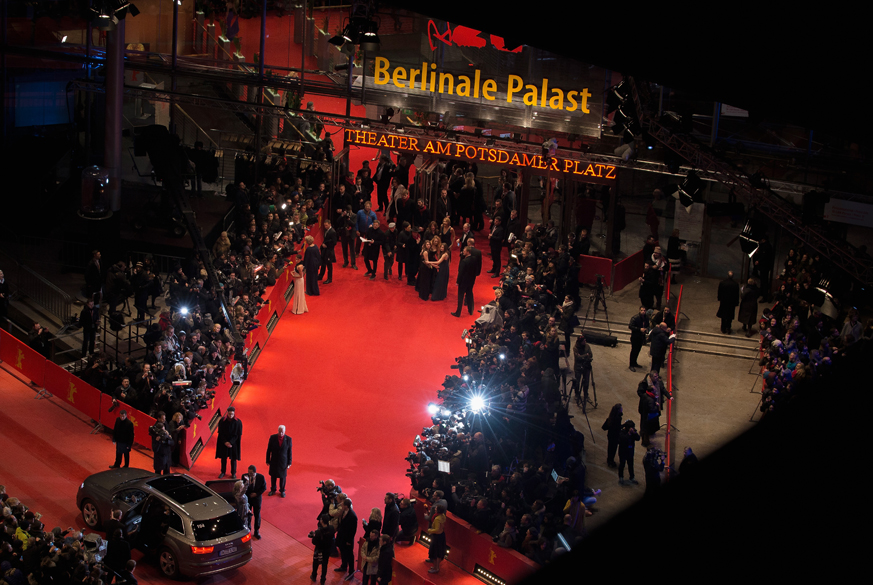
- Festivals
Legacy and Activism As The 66th Berlin International Film Festival Opens
The 66th Berlin film festival opened on February 11, having secured a number of high-profile participants and screenings for its ten-day run. Hollywood stars such as George Clooney and Channing Tatum graced the red carpet on its opening night, while Meryl Streep is presiding on the festival jury as it deliberates over the winner of the top prize, the Golden Bear, and the legacy of such high-profile figures as Alan Rickman, David Bowie and Ettore Scola are celebrated in special tribute events.

General view of atmosphere is pictured during the Hail, Caesar! premiere during the 66th Berlinale International Film Festival Berlin at Berlinale Palace on February 11, 2016 in Berlin, Germany.
getty images
With titles such as the existential drama Death in Sarajevo by the Bosnian director Danis Tanović and refugee documentary Fire at Sea, from Italian filmmaker Gianfranco Rosi, among the competing films, the 66th Berlinale continues its tradition of showcasing socially engaged filmmaking. However, the festival gave its prestigious opening slot to Hail, Cesar! – the star-stuffed comedy about Hollywood’s early-50s golden age, directed by Joel and Ethan Coen. Hail, Caesar!’s roster of big-name actors – including Clooney, Tatum and Tilda Swinton and the presence of Streep heading the jury are adding a considerable luster to the Berlinale suggesting this edition, beside showing a high-quality product, is a good launch pad for studios’ films.
As one of Europe’s prominent film festivals alongside Cannes and Venice, Berlin has, over the decades, forged its own identity. This year, films that reflect the world we live in, political, issue-driven films play a prominent part in the program. Proof of it is the amount of films dealing with migration and human rights in the festival lineup – including Gianfranco Rosi’s documentary Fire at Sea, which examines the experiences of the inhabitants of the Italian island of Lampedusa, currently one of the frontlines of the migration crisis, Rafi Pitts’s, Soy Nero, that deals with a young Mexican immigrant who realizes that his only chance to lead a regular life is by enlisting in the U.S. Army as “A Green Card Soldier” and Alex Anwandter’s, Nunca vas a estar solo (You’ll Never Be Alone), the story of a father, a single parent, living with his 17-year-old son who is almost beaten to death because he is gay.
This year marks the 30th anniversary of the Teddy Award, the only official LGBTIQ (in short, queer) film prize given at an A-festival in the world. An offshoot of the Panorama, the prize has been awarded since 1987, in the categories of Short Film, Documentary and Feature Film, to works relevant to queer culture. Eligible every year, are films from all of the Berlinale sections. For 2016, the Teddy has put together an anniversary program of rarely seen works, a total of 17 films, some of which had been made before the award came into existence, and were also why it was established in the first place. In this context, the Panorama will be presenting a special screening, the world premiere of the restoration of Anders als die Andern (Different from the Others) Germany (1919). This film by Richard Oswald was the first gay film in cinematic history; the Outfest Legacy Project/UCLA Film & Television Archive in Los Angeles has carried out its restoration.
This year the festival will also pay tribute to recently departed entertainment industry notables as the series of tribute screenings suggests. Alan Rickman will be commemorated with a screening of Sense and Sensibility, the Ang Lee-directed Jane Austen adaptation which won the Golden Bear at the 1996 Berlinale; David Bowie – who lived and worked in Berlin for an extended period in the late 1970s – will be recognized with a showing of the Nicolas Roeg-directed sci-fi parable The Man Who Fell to Earth, which competed in Berlin (but failed to win an award) in 1976 and Italian director Ettore Scola, who died in January, will be honored with a screening of his 1983 dialogue-free film The Ball, which won Scola the Silver Bear for best director.
Paz Mata